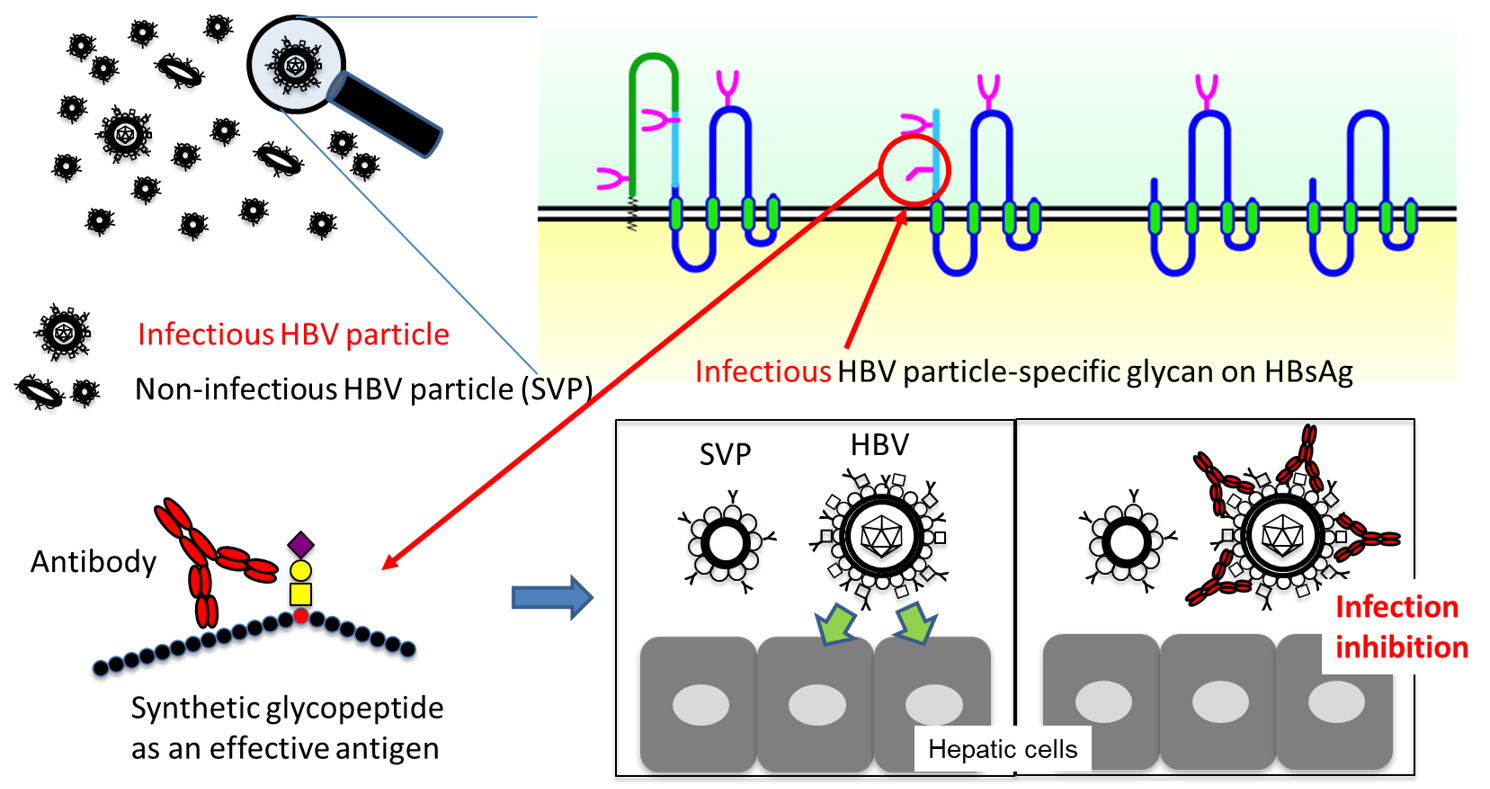Development of Novel Antibody Targeting Glycoprotein Specific to Infectious Hepatitis B Virus
About 300 million people worldwide are estimated to carry the hepatitis B virus (HBV) chronically. HBV infection leads to liver diseases such as hepatitis, cirrhosis, and liver cancer.
HBV can escape from the immune system by producing large amounts of non-infectious decoy virus particles.
Recently, we used a lectin microarray to analyze the glycan profile of HBV particles without destroying them, and identified regions containing glycans specific to infectious HBV particles (Wagatsuma et al., Anal Chem 2018).
In this study, we identified the glycan structure by mass spectrometry, synthesized glycopeptides using glycosyltransferases, and succeeded in obtaining a novel antibody that recognizes infectious HBV particle-specific glycan on HBsAg.
This antibody presented the inhibition activity of HBV infection in vitro.
Our research demonstrated a platform for the development of antibodies that contribute to the diagnosis and treatment of infectious diseases using the technologies of analyzing and synthesizing glycans on the target molecules.
This research was conducted as a joint research of AIST, National Center for Global Health and Medicine, Nagoya City University, and University of Toyama, with the support of the Ministry of Health, Labor and Welfare and AMED.
Development of antibodies that prevent infection by targeting glycans specific to infectious hepatitis B virus

Collaboration
- National Center for Global Health and Medicine, Nagoya City University, and University of Toyama
Publication
- Title: O-glycosylated HBsAg peptide can induce specific antibody neutralizing HBV infection
- Authors: Kiyohiko Angata et al.
- Journal: Biochimica et Biophysica Acta (BBA)-General Subjects
- DOI: 10.1016/j.bbagen.2021.130020